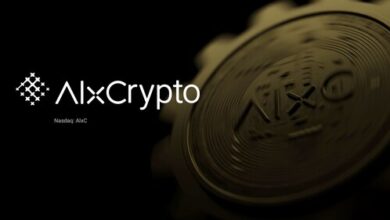
The United Arab Emirates has once again solidified its position as one of the world’s leading jurisdictions in digital-asset regulation, according to the newly released Global Digital Assets Report 2025 by the Global Finance & Technology Network (GFTN) in collaboration with Arthur D. Little.
Launched during the Singapore FinTech Festival 2025, the report identifies the UAE as a key driver of regulated digital finance, joining Singapore and Switzerland at the forefront of global innovation in digital-asset oversight.
A Global Shift Toward Regulated Digital Finance
The study highlights a global surge in digital-asset activity, with stablecoin transactions surpassing $263 trillion since 2019, including $40 trillion in the past year alone. Meanwhile, the tokenized real-world asset market has expanded by 380% since 2022, propelled by institutional pilot programs and clearer regulatory standards.
According to the report, 31% of regulators worldwide now cite stablecoin issuers as their top supervisory concern, while 46% see programmable finance, the use of blockchain-based automation in financial contracts, as the next major opportunity.
UAE’s Leadership in Regulatory Clarity
The report credits the UAE’s progress to robust regulatory design and coordination between its two principal financial hubs:
- Dubai’s Virtual Assets Regulatory Authority (VARA), which oversees virtual asset activities through an activity-based licensing model; and
- Abu Dhabi Global Market’s Financial Services Regulatory Authority (FSRA), known for its comprehensive framework balancing innovation with investor protection.
Together, these institutions have positioned the UAE as a global benchmark for digital-asset governance, investor safety, and market integrity.
Neighboring Gulf countries are also advancing their frameworks. Saudi Arabia’s SAMA and Capital Market Authority (CMA) are developing rules for tokenization pilots and cross-border payments, while Qatar’s Financial Centre Regulatory Authority (QFCRA) is integrating digital-asset regulation into its existing financial laws.
Regional Cooperation Strengthens Investor Confidence
The GFTN study, based on interviews with over 40 regulators, central bankers, and financial executives from Asia, Europe, and the Middle East, finds that investor participation grows fastest in markets with clear and predictable regulation. GCC countries, particularly the UAE and Qatar, now rank among those fostering structured cooperation to ensure responsible market development and interoperability.
“The data shows a region that has moved from aspiration to execution,” said Sopnendu Mohanty, Group CEO of GFTN. “Behind the numbers is a simple reality: capital follows clarity. The Gulf’s regulators are building frameworks designed for longevity, not hype.”
Arjun Vir Singh, Partner and Head of Financial Services at Arthur D. Little Middle East, added:
“Our collaboration with GFTN demonstrates how sound policy design can accelerate market readiness. The GCC’s frameworks are setting new global standards for institutional confidence in digital finance.”
A Blueprint for Global Policymakers
The Global Digital Assets Report 2025 provides one of the most comprehensive cross-jurisdictional reviews of digital-asset regulation to date. It offers policymakers and financial institutions a reference for understanding how digital money, tokenization, and decentralized finance are evolving across markets.
By highlighting the GCC’s shift from exploratory pilots to regulated, interoperable systems, the report concludes that the UAE now ranks among the world’s most advanced digital-asset ecosystems, setting the stage for deeper collaboration between regional authorities and international standard-setters.





